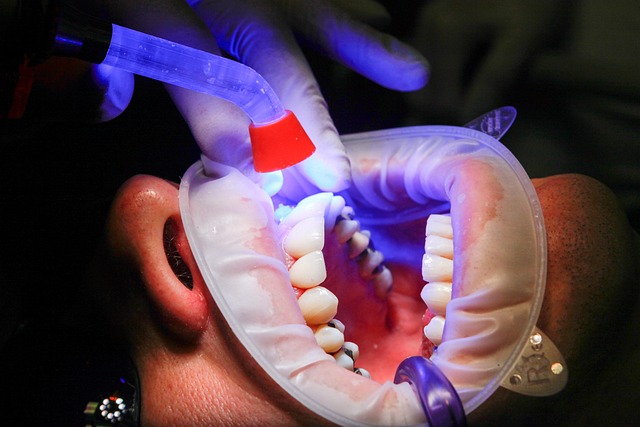Post-traumatic stress disorder (PTSD) is treated through psychotherapy, focusing on evidence-based therapies like Cognitive Behavioral Therapy (CBT) and Eye Movement Desensitization and Reprocessing (EMDR). CBT targets thought patterns, helping individuals manage symptoms and regain control. EMDR uses bilateral stimulation to process traumatic memories healthily, reducing emotional intensity. These therapies, along with tailored coping strategies, aid in healing from trauma and improving quality of life for PTSD sufferers. Choosing a specialized therapist with a strong therapeutic alliance is crucial for effective PTSD treatment.
“Trauma and post-traumatic stress disorder (PTSD) can leave profound, lasting effects on an individual’s mental health and daily life. Psychotherapy emerges as a powerful tool in the journey towards healing. This comprehensive guide delves into the multifaceted world of PTSD treatment through psychotherapy, exploring its mechanisms, benefits, and diverse approaches. From understanding the symptoms and causes to finding the right therapist, we navigate the path to recovery, offering insights for those seeking effective PTSD treatment.”
Understanding PTSD: Symptoms and Causes

Post-traumatic stress disorder (PTSD) is a complex mental health condition that can arise after exposure to traumatic events. Understanding PTSD involves recognizing its symptoms, which can include flashbacks, nightmares, intense emotions, and avoidance behaviors related to the trauma. These symptoms often disrupt daily life and relationships, making it challenging for individuals to function normally.
Several factors contribute to the development of PTSD. Traumatic events such as military combat, accidents, natural disasters, or severe violence can trigger the condition. Genetic predisposition and personal resilience also play a role. In some cases, previous mental health conditions or substance abuse issues might increase vulnerability. Effective PTSD treatment focuses on helping individuals process and manage these symptoms, often through evidence-based therapies like cognitive behavioral therapy (CBT) and eye movement desensitization and reprocessing (EMDR).
The Role of Psychotherapy in PTSD Treatment

Psychotherapy plays a pivotal role in the comprehensive approach to PTSD treatment, offering a range of evidence-based therapeutic modalities tailored to address the unique needs of individuals grappling with this condition. Through careful exploration and processing of traumatic memories, therapists enable patients to develop healthier coping mechanisms and reduce the powerful hold that past traumas may have on their present lives.
One of the most effective psychotherapy approaches for PTSD treatment is cognitive behavioral therapy (CBT), which focuses on challenging and modifying unhelpful thought patterns and behaviors associated with trauma. By learning to manage symptoms like avoidance, hypervigilance, and intrusive memories, individuals can gradually regain a sense of control and improve their overall quality of life. Other therapeutic methods, such as eye movement desensitization and reprocessing (EMDR), offer innovative ways to process traumatic memories, helping patients integrate them into their narrative in a safe and supportive environment.
Common Psychotherapy Approaches for PTSD

Psychotherapy plays a pivotal role in the journey towards healing from trauma and Post-Traumatic Stress Disorder (PTSD). Several evidence-based approaches have proven effective in treating PTSD, offering individuals tools to manage symptoms and regain control of their lives. One widely recognized method is Cognitive Behavioral Therapy (CBT), which focuses on identifying and changing negative thought patterns and behaviors associated with traumatic memories. By challenging unhelpful cognitions, CBT helps individuals process and reframe traumatic events, reducing the intensity of PTSD symptoms.
Another popular therapy type is Eye Movement Desensitization and Reprocessing (EMDR). EMDR combines exposure therapy with guided eye movements to help patients process traumatic memories. This approach facilitates the brain’s natural healing process by allowing individuals to re-experience traumatic memories while simultaneously focusing on the accompanying distressing emotions and beliefs. Through this process, patients can reduce the emotional impact of the trauma, leading to significant improvements in their PTSD symptoms.
Benefits of Cognitive Behavioral Therapy (CBT) for PTSD

Cognitive Behavioral Therapy (CBT) is a highly effective PTSD treatment approach, offering individuals tools to manage their symptoms and regain control over their lives. This therapy focuses on identifying and changing negative thought patterns and behaviors that contribute to post-traumatic stress disorder (PTSD). By challenging distorted beliefs and replacing them with realistic, balanced thoughts, CBT enables people to process traumatic memories differently, reducing the intensity of emotional responses.
One of CBT’s key advantages is its structured nature, providing a clear framework for understanding and managing PTSD symptoms. It equips clients with coping strategies, such as relaxation techniques and problem-solving skills, to navigate challenging situations. This evidence-based method has consistently shown positive outcomes in numerous studies, making it a preferred choice for many seeking effective PTSD treatment.
Eye Movement Desensitization and Reprocessing (EMDR): An Innovative Technique

Eye Movement Desensitization and Reprocessing (EMDR) is an innovative technique that has gained significant attention as a effective PTSD treatment. This therapy involves guiding patients through bilateral stimulation, such as side-to-side eye movements or tactile taps, while they focus on traumatic memories. The process helps to desensitize individuals to distressing events, allowing them to process and integrate these memories in a healthier way.
EMDR works by accessing and processing stored memory networks associated with the trauma, along with associated emotions, beliefs, and physical sensations. By repeatedly stimulating the brain through bilateral stimulation, EMDR facilitates a natural healing process that rewire’s the way the brain responds to traumatic memories. This results in reduced intensity of the emotional reaction and a lessened impact on daily functioning, making it an increasingly popular choice among PTSD treatment options.
Building Resilience and Coping Strategies Through Therapy

Through psychotherapy, individuals with trauma and PTSD can develop essential coping strategies to navigate their experiences. Therapists help clients identify and challenge unhelpful thought patterns, providing a safe space to process emotions. This process allows for the development of resilience, enabling people to cope better with traumatic reminders.
Therapy sessions often incorporate various techniques such as exposure therapy, cognitive processing therapy, or eye movement desensitization and reprocessing (EMDR). These approaches help individuals face their fears gradually, reframe negative beliefs, and process past traumas. As clients gain a deeper understanding of their experiences, they learn to manage symptoms, reduce avoidance behaviors, and develop healthy coping mechanisms, ultimately improving their quality of life and enhancing their ability to thrive despite the challenges posed by PTSD.
Finding the Right Therapist: Tips and Considerations

Finding the right therapist for PTSD treatment is a crucial step in your healing journey. It’s essential to consider specialists who have experience and training in trauma-focused therapies, such as EMDR (Eye Movement Desensitization and Reprocessing) or cognitive behavioral therapy (CBT). Look for professionals certified by reputable organizations dedicated to mental health and trauma care.
Personal connection matters too. You should feel comfortable and safe sharing your experiences with your therapist. Open communication is key; ensure they provide a non-judgmental, supportive environment where you can openly discuss your symptoms and progress. Past success stories from other clients with PTSD can also offer valuable insights into a therapist’s effectiveness.
